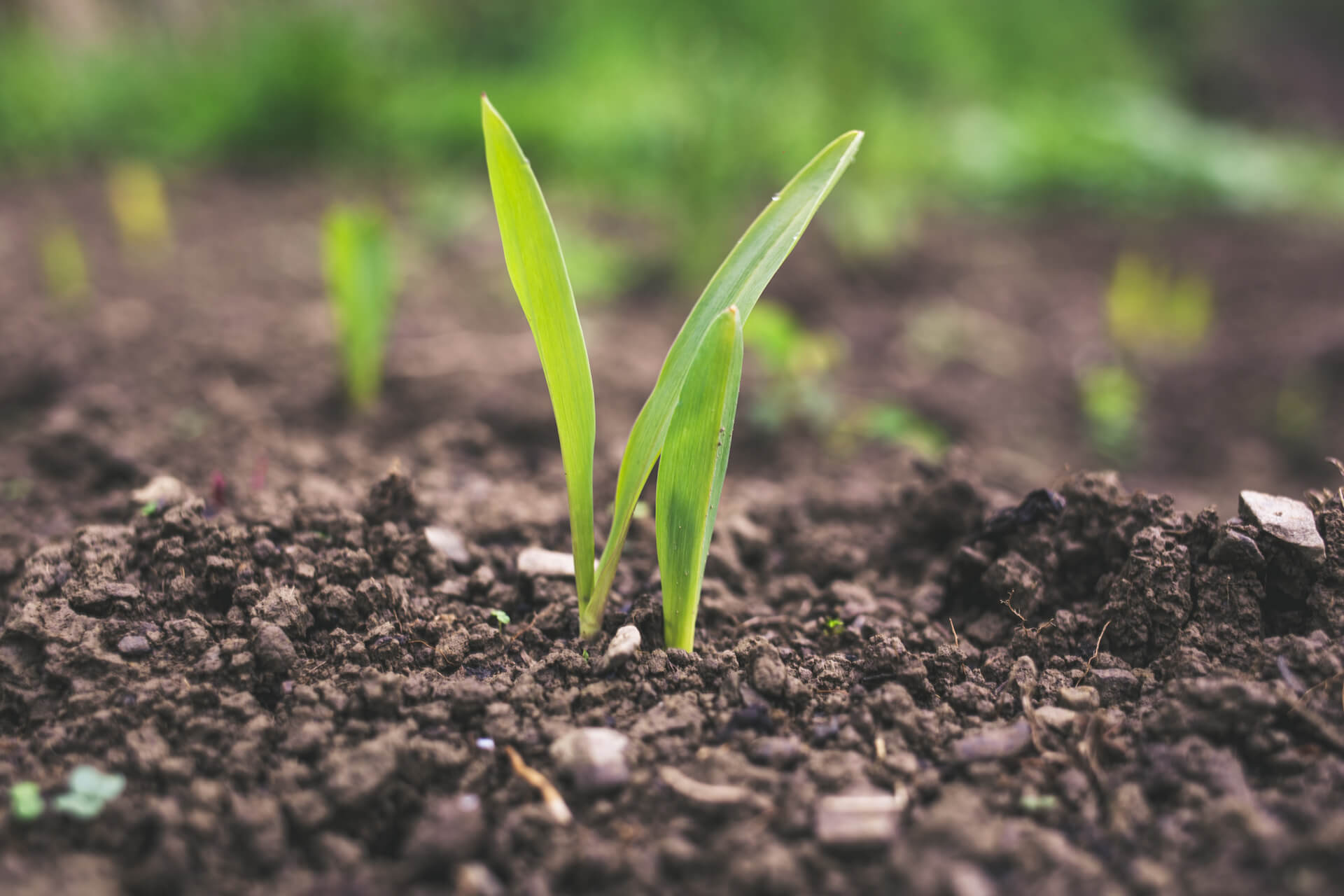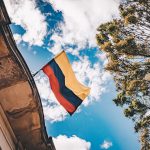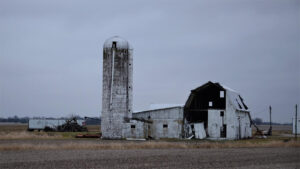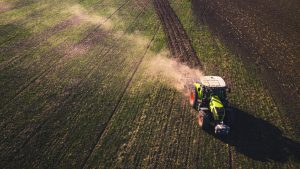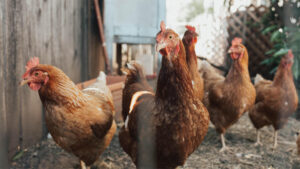My fourth book, The End of the World Is Just the Beginning: Mapping the Collapse of Globalization is scheduled for release on June 14. In coming weeks we will be sharing graphics and excerpts, along with info on how to preorder.
Is climate change important? Absolutely. But that doesn’t mean we’ve cracked the code. Consider this excerpt from my upcoming book, The End of the World Is Just the Beginning:
Our capacity to forecast climate impacts tends to be embarrassingly off. The best recent example is the United States in mid-2021. A high-pressure system locked some warm air over the Pacific Northwest. Some of that air then descended from the Cascades, triggering compression effects. The result? Normally cloudy, rainy, grungy locales mutated into open ovens for weeks. Portland, Oregon, repeatedly clocked temperatures above 120 degrees. I’ve seen many climate models that suggest the inevitability of hotter deserts or a hotter American South, but none have projected that Portland—freakin’ Portland—would end up being hotter than Las Vegas has ever been. The reason for such a fundamental miss is simple: we do not at present have good enough data to project climate change down to the zip code level.
We’ve obsessed somewhat narcissistically upon how climate shifts might impact cities, and our data simply isn’t good enough to generate reliable forecasts. Instead, we should focus on the far easier math of climate shifts upon continent-spanning climate bands. Not so useful for determining house insurance rates, but critical to understanding what we can grow.
Check out the below map from the agriculture chapter of The End of the World. We sometimes forget that most of the Earth’s land surface is unsuitable for growing crops, and even much of what is is not particularly great. It doesn’t take much of a climate nudge to push marginal lands into the “unsuitable” category. And nudging is certainly happening. For decades, shifts in wind currents have been tweaking regional weather patterns. Simply continuing such long-established patterns for another 30 years will have outsize impacts upon agriculture. Almost everywhere.
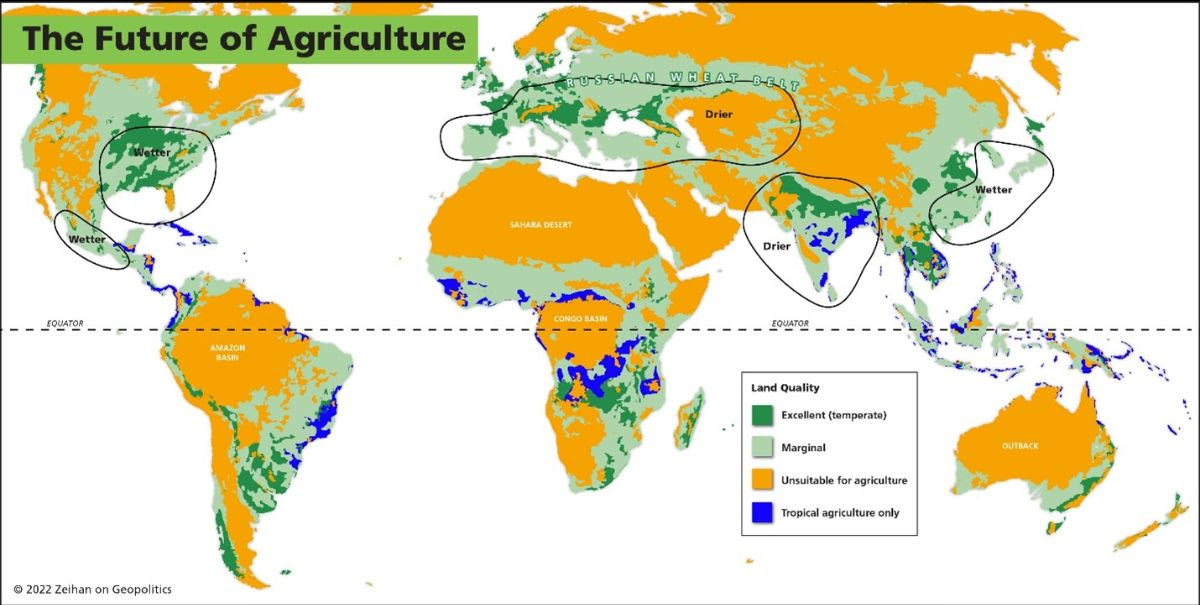
Here at Zeihan On Geopolitics we select a single charity to sponsor. We have two criteria:
First, we look across the world and use our skill sets to identify where the needs are most acute. Second, we look for an institution with preexisting networks for both materials gathering and aid distribution. That way we know every cent of our donation is not simply going directly to where help is needed most, but our donations serve as a force multiplier for a system already in existence. Then we give what we can.
Today, our chosen charity is a group called Medshare, which provides emergency medical services to communities in need, with a very heavy emphasis on locations facing acute crises. Medshare operates right in the thick of it. Until future notice, every cent we earn from every book we sell in every format through every retailer is going to Medshare’s Ukraine fund.
And then there’s you.
Our newsletters and videologues are not only free, they will always be free. We also will never share your contact information with anyone. All we ask is that if you find one of our releases in any way useful, that you make a donation to Medshare. Over one third of Ukraine’s pre-war population has either been forced from their homes, kidnapped and shipped to Russia, or is trying to survive in occupied lands. This is our way to help who we can. Please, join us.

